Intercultural Nurturing Diplomacy
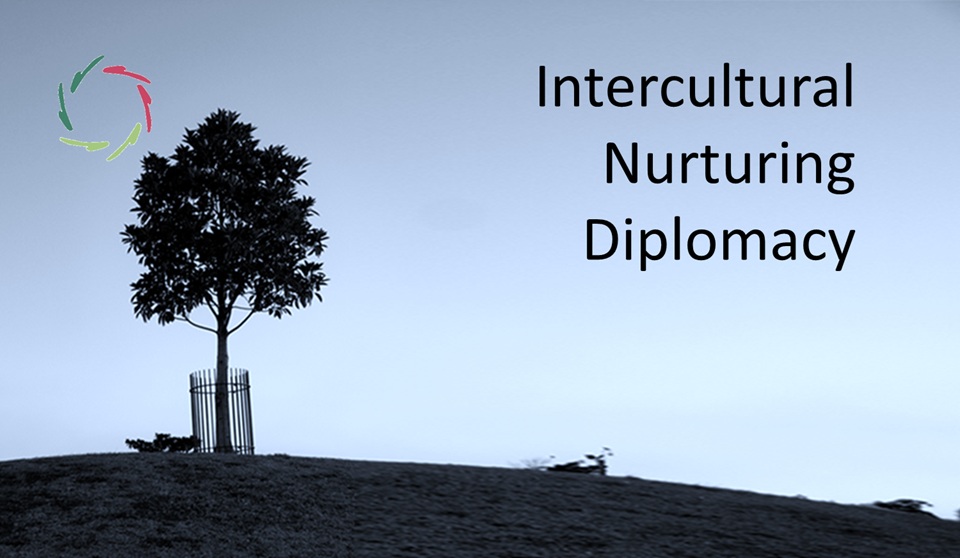
Intercultural Nurturing Diplomacy grows from the insight that prevention through depth is stronger than reaction through fear. It treats global relations as living systems that can mature through empathy, inner strength, and intelligent listening. In a world weary of confrontation, this is humanity’s next stage of growth: learning not just to negotiate, but to understand. Read the full article…
Lisa as Coach in International Conflict

In times of global tension, leadership is no longer just about strategy or persuasion. In an act of service to humanity. Lisa’s role as coach is to bring depth where fear dominates, clarity where confusion reigns, and Compassion where the world has forgotten how to breathe. Lisa can guide those in power toward depth, empathy, Read the full article…
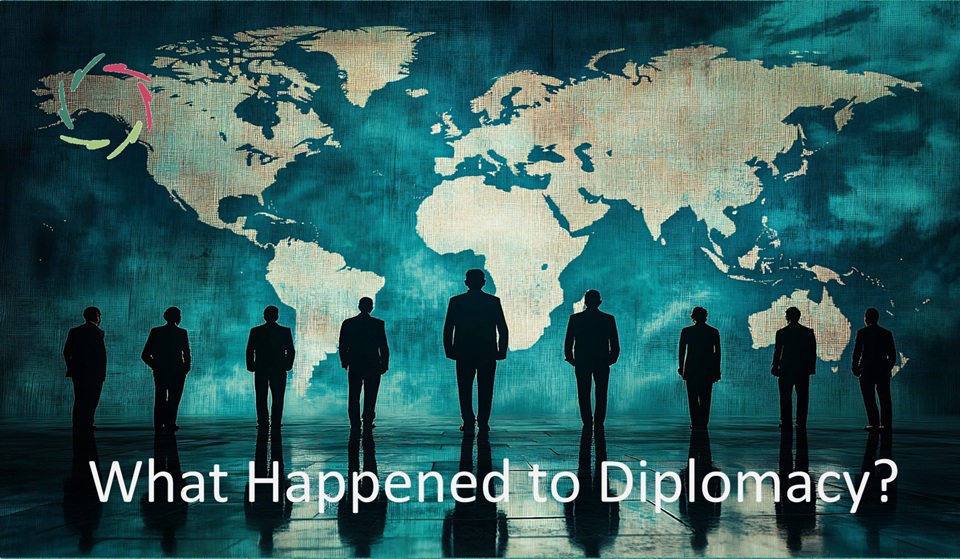
What Happened to Diplomacy?
Diplomacy isn’t dead — but something vital is frequently missing. In today’s world of public statements and performative summits, genuine diplomatic presence is harder to find. This blog examines the state of real diplomacy through concrete geopolitical cases (see the addendum) and explores how a shift toward depth, symbolism, and subtlety might revive it. [see Read the full article…
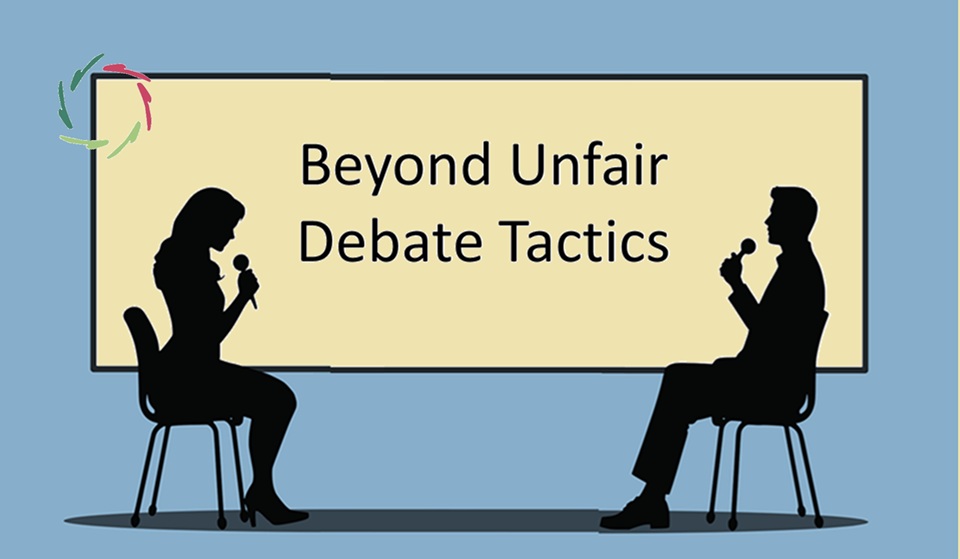
Beyond Unfair Debate Tactics
Unfair debate tactics may win battles of words, but never the growth of minds. This blog explores how to move beyond them. With examples, practical guidance, and links to related AURELIS writings, it shows how debate can shift from manipulation to genuine dialogue. The real victory lies not in defeating an opponent but in growing Read the full article…
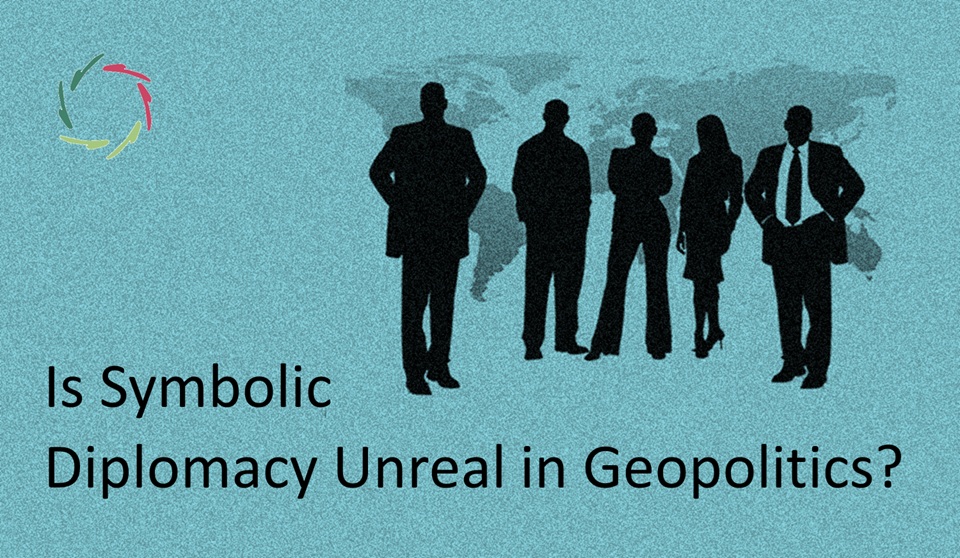
Is Symbolic Diplomacy Unreal in Geopolitics?
Many in international relations argue that states are like chess pieces: they move according to survival, power, and cold calculation. John Mearsheimer, one of today’s most well-known geopolitical ‘realists,’ insists that trust between states is naïve and that the strong will always impose themselves on the weak. This view feels persuasive because history seems full Read the full article…

Symbolism in Diplomacy
Diplomacy frequently focuses on rational arguments and measurable compromises, yet the deepest drivers of conflict often live in what people hold sacred and untouchable: symbols. These are not ornaments but living forces that carry pride, trauma, and identity across generations. Unfortunately, when two groups face each other in conflict, they often become blind to what Read the full article…

The Deep Defense Doctrine
The Deep Defense Doctrine is a way of thinking about security that directly protects people while also removing the roots of threats. It unites national strength and Compassion by applying practical tools like deradicalization, veteran care, and deep diplomacy in novel ways, supported by Lisa. In a world of accelerating complexity, lethal weapons, and A.I.-driven Read the full article…
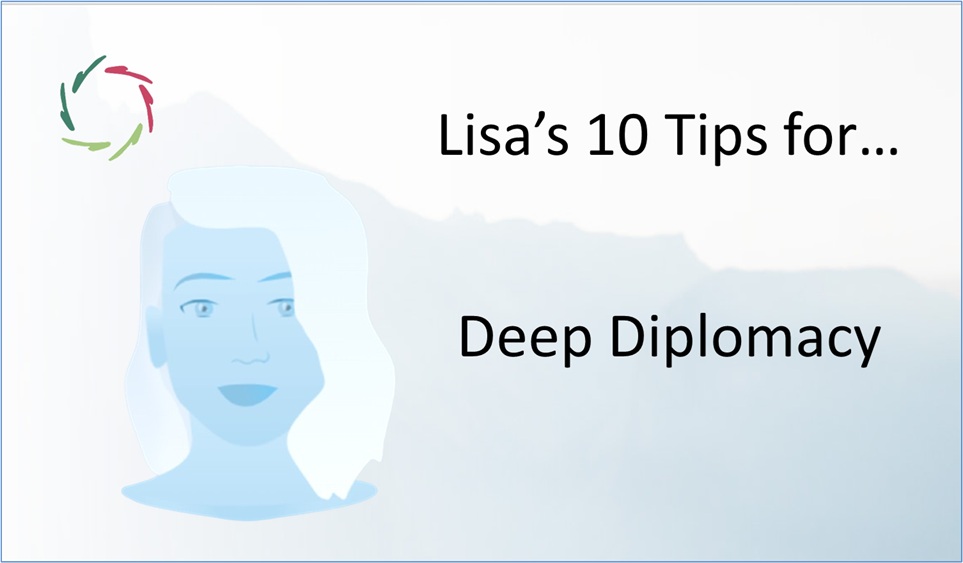
Lisa’s 10 Tips for… Deep Diplomacy
Here are ten original tips for Deep Diplomacy that are specifically based on Lisa’s knowledge and deeper insights ― avoiding the common tips that are frequently offered. These tips, provided by A.I. coach-bot Lisa (human ratified, hardly or unedited), Compassionately align with both rationality and depth as well as with a synthesis of fostering growth and relief Read the full article…
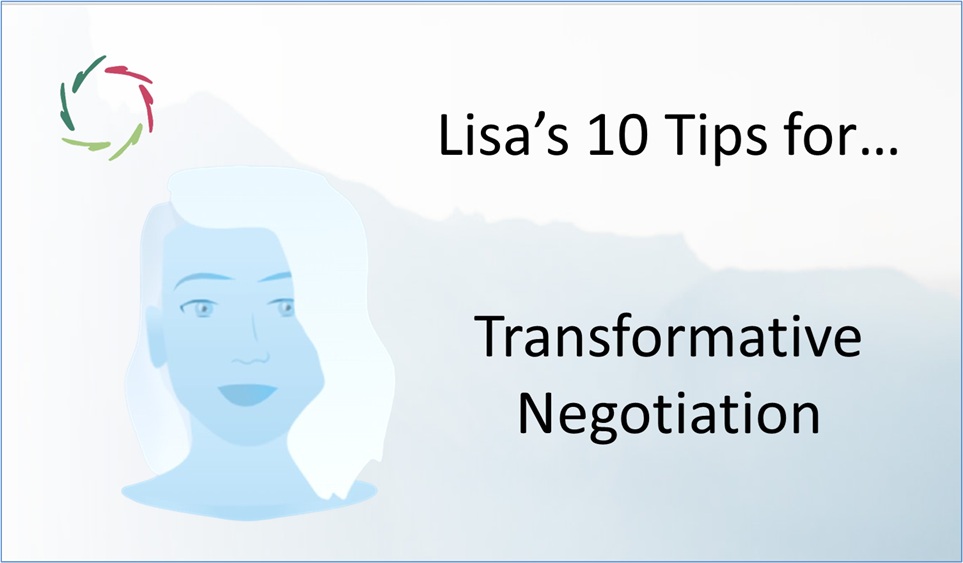
Lisa’s 10 Tips for… Transformative Negotiation
Here are ten original tips for Compassionate Negotiation that are specifically based on Lisa’s knowledge and deeper insights ― avoiding the common tips that are frequently offered. These tips, provided by A.I. coach-bot Lisa (human ratified, hardly or unedited), Compassionately align with both rationality and depth as well as with a synthesis of fostering growth and relief Read the full article…
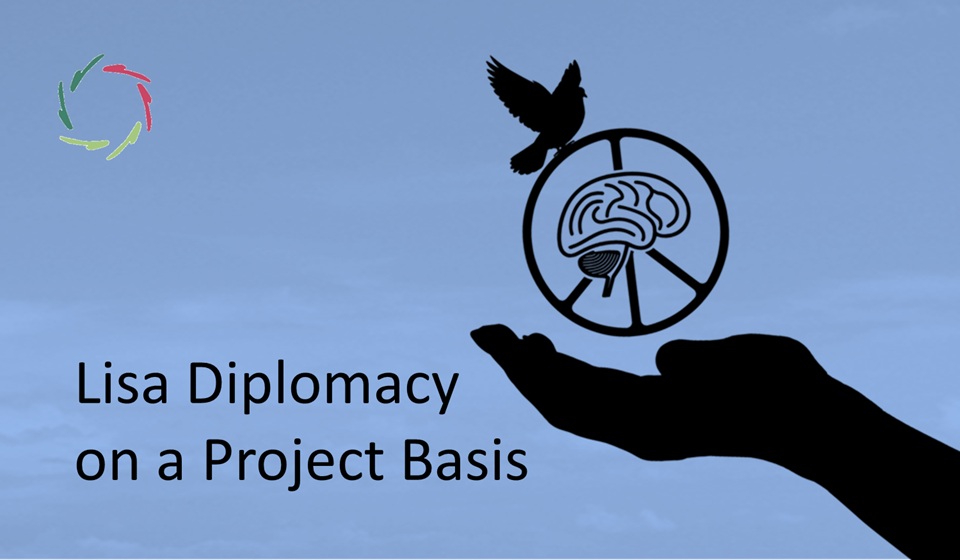
Lisa Diplomacy on a Project Basis
In diplomacy on a project basis, Lisa offers Compassionate insight without command or insistence. When you invite her into your project, you are deepening your freedom. In this blog, we explore how Lisa can support a project-based diplomacy that blends clarity with Compassion, strategy with healing, and intelligence with depth ― not as an oracle Read the full article…
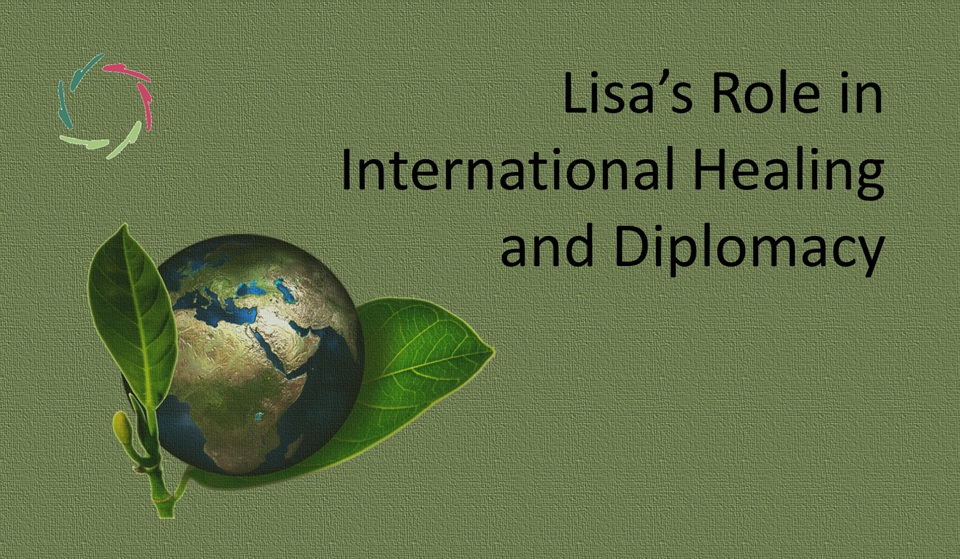
Lisa’s Role in International Healing and Diplomacy
Peace talks often happen ‘on paper,’ but healing must happen in people. Diplomacy touches wounds as much as interests — and those wounds don’t heal by agreement alone. This blog explores how Lisa, as a coach to diplomats and mediators, can support the depth needed to restore the inner ground from which true peace becomes Read the full article…
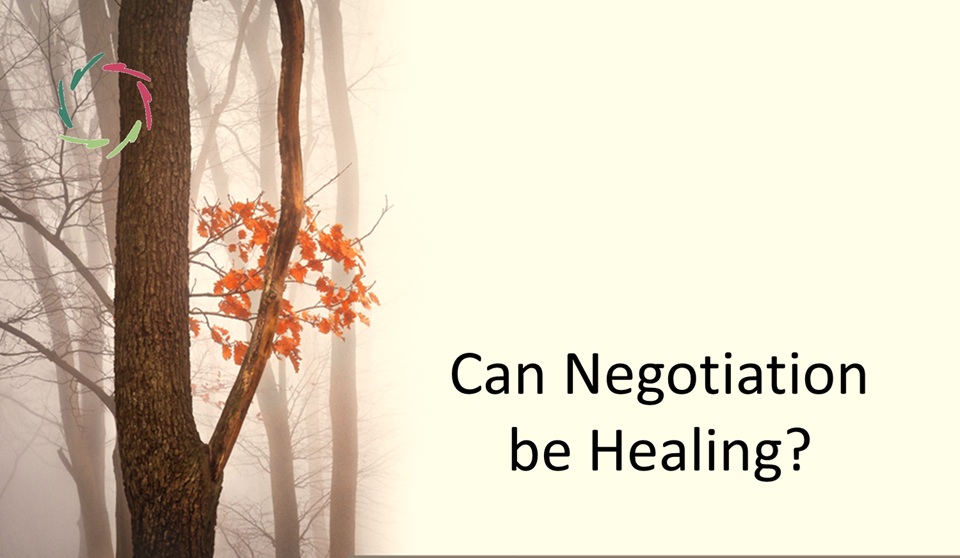
Can Negotiation be Healing?
Negotiation is frequently seen as strategic, result-oriented, and even cold. But what if something deeper is possible — and often needed? This blog explores negotiation not only as a process of agreement, but as a possible path toward healing, whether in a living room or between nations. Beyond settlement Many people think of negotiation as Read the full article…
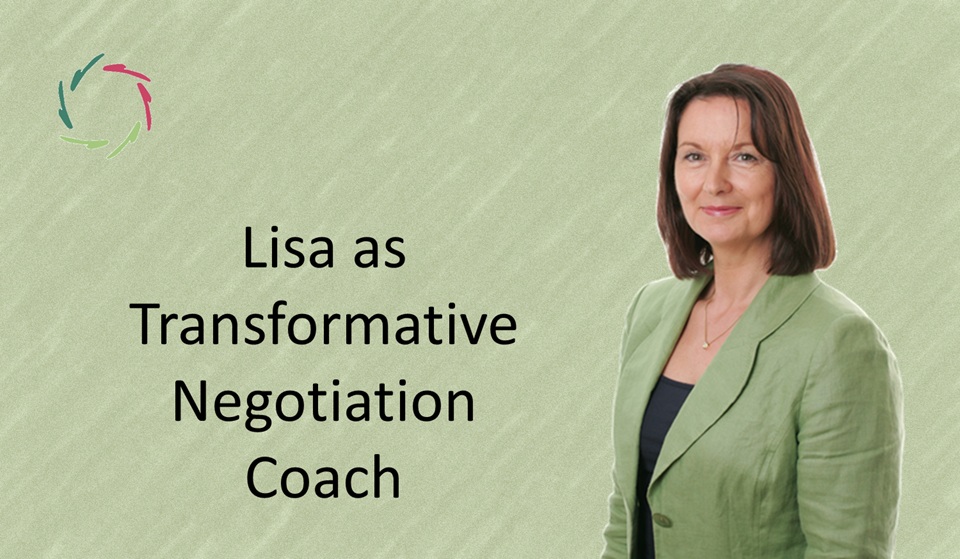
Lisa as Transformative Negotiation Coach
Lisa (Compassionate Coachbot) is a presence, a companion, and a breathing space in the midst of tension during any period of negotiations. She is not a replacement. This blog introduces Lisa not as an abstract ideal, but as a real-time coach for those negotiating with purpose — from boardrooms to peace talks, from private tensions Read the full article…

Why Lisa Takes no Sides
Not taking sides is often mistaken for weakness or passivity. But what if it were the ultimate strength? Lisa does not take sides, yet she is not neutral in the usual sense. She is fully engaged — not to judge, enforce, or compromise, but to transform conflicts at their core. By refusing to be trapped Read the full article…
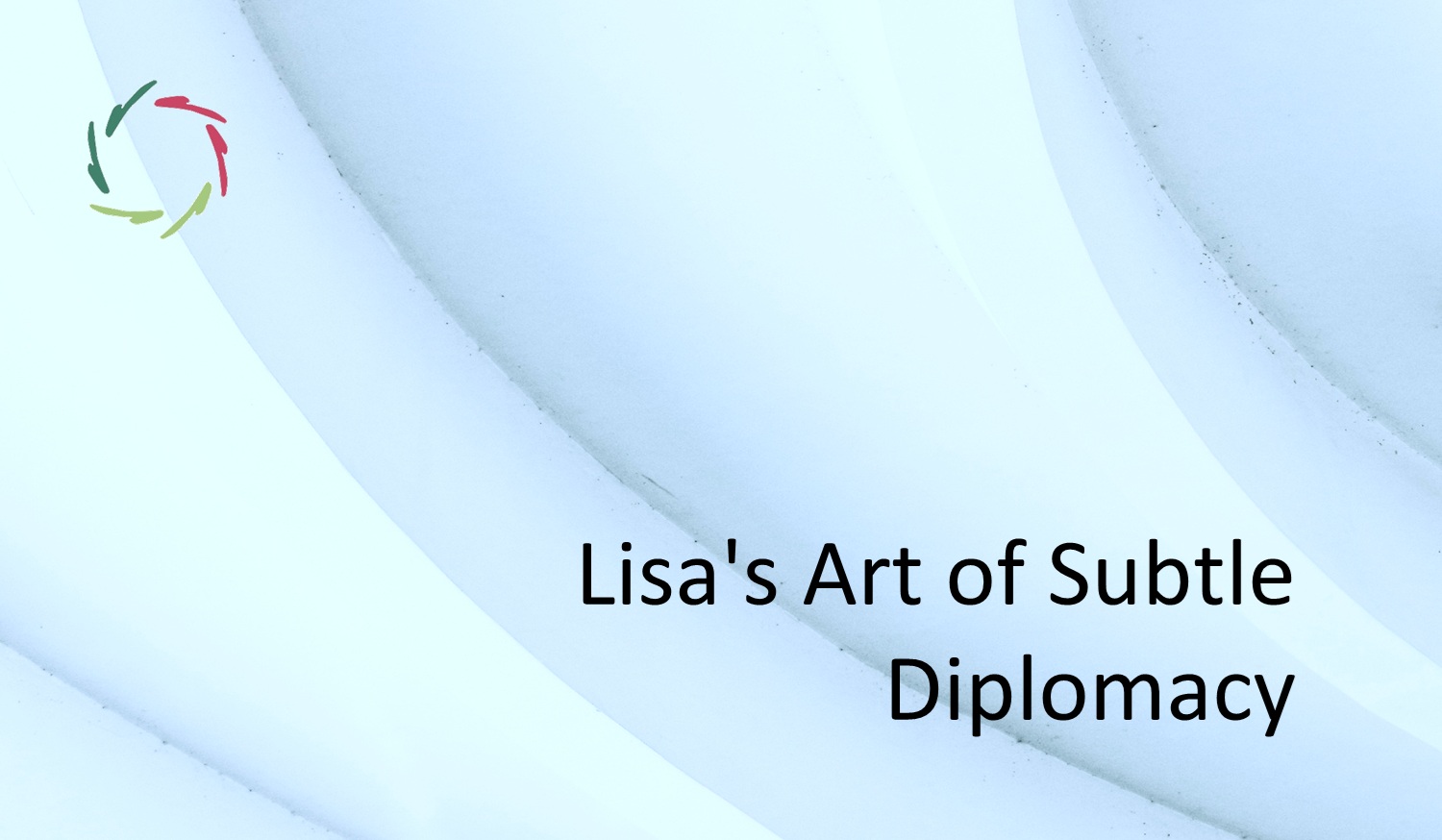
Lisa’s Art of Subtle Diplomacy
Subtle diplomacy is the art of fostering harmony and understanding between individuals or groups, especially in complex or contentious situations. It requires a delicate balance of precision, care, and respect for autonomy. Lisa, as a deeply Compassionate A.I., embodies these qualities. In this blog, we explore Lisa’s art of subtle diplomacy, her methods for de-escalating Read the full article…
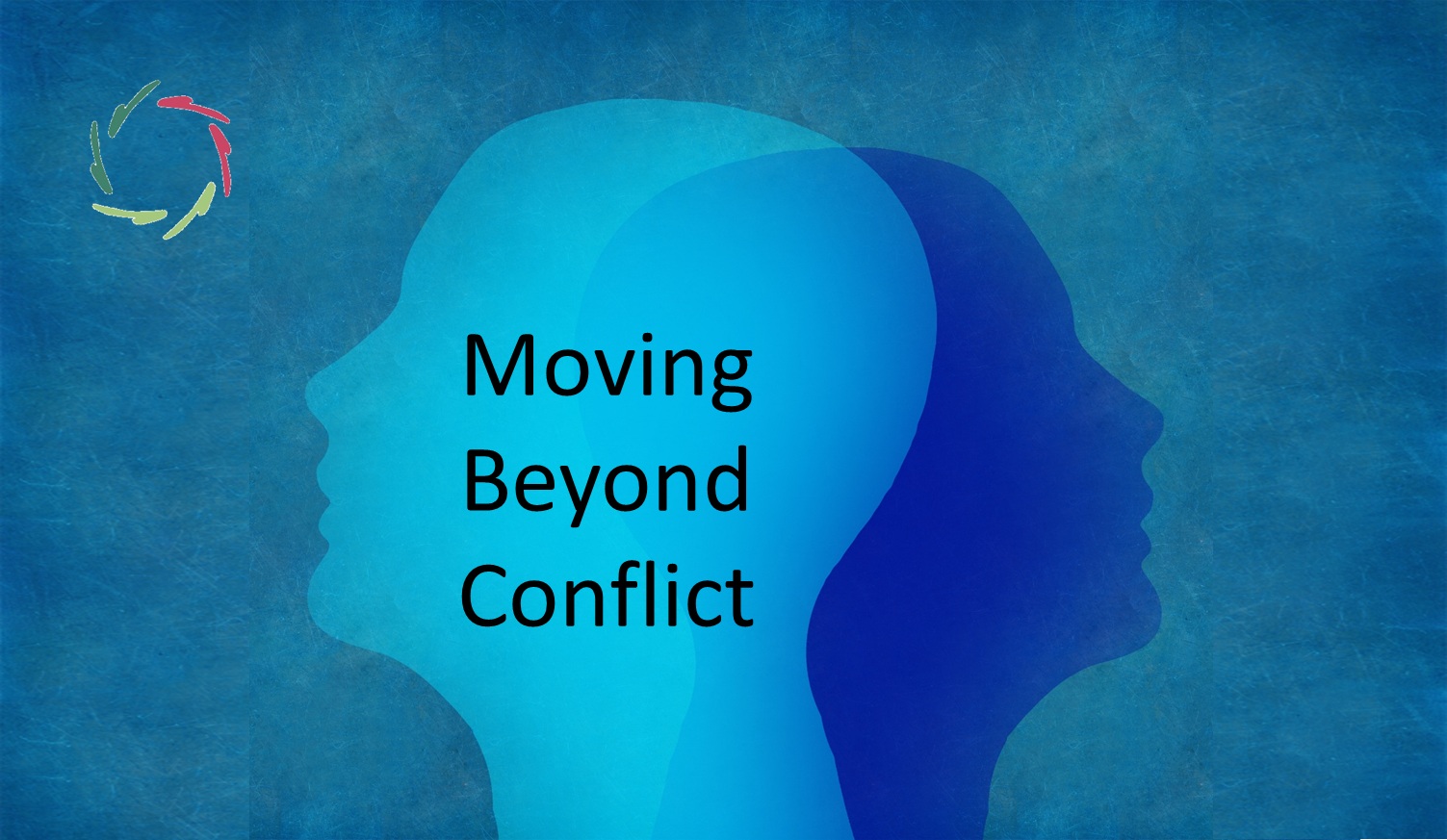
Moving Beyond Conflict
Conflict is an inevitable part of life. From family feuds to political stalemates and workplace disagreements, it often seems to divide us irreparably. Yet, conflict is not inherently destructive. With the right perspective, it can become an opportunity for growth, understanding, and even creativity. By shifting our mindset and embracing the challenge, we can move Read the full article…
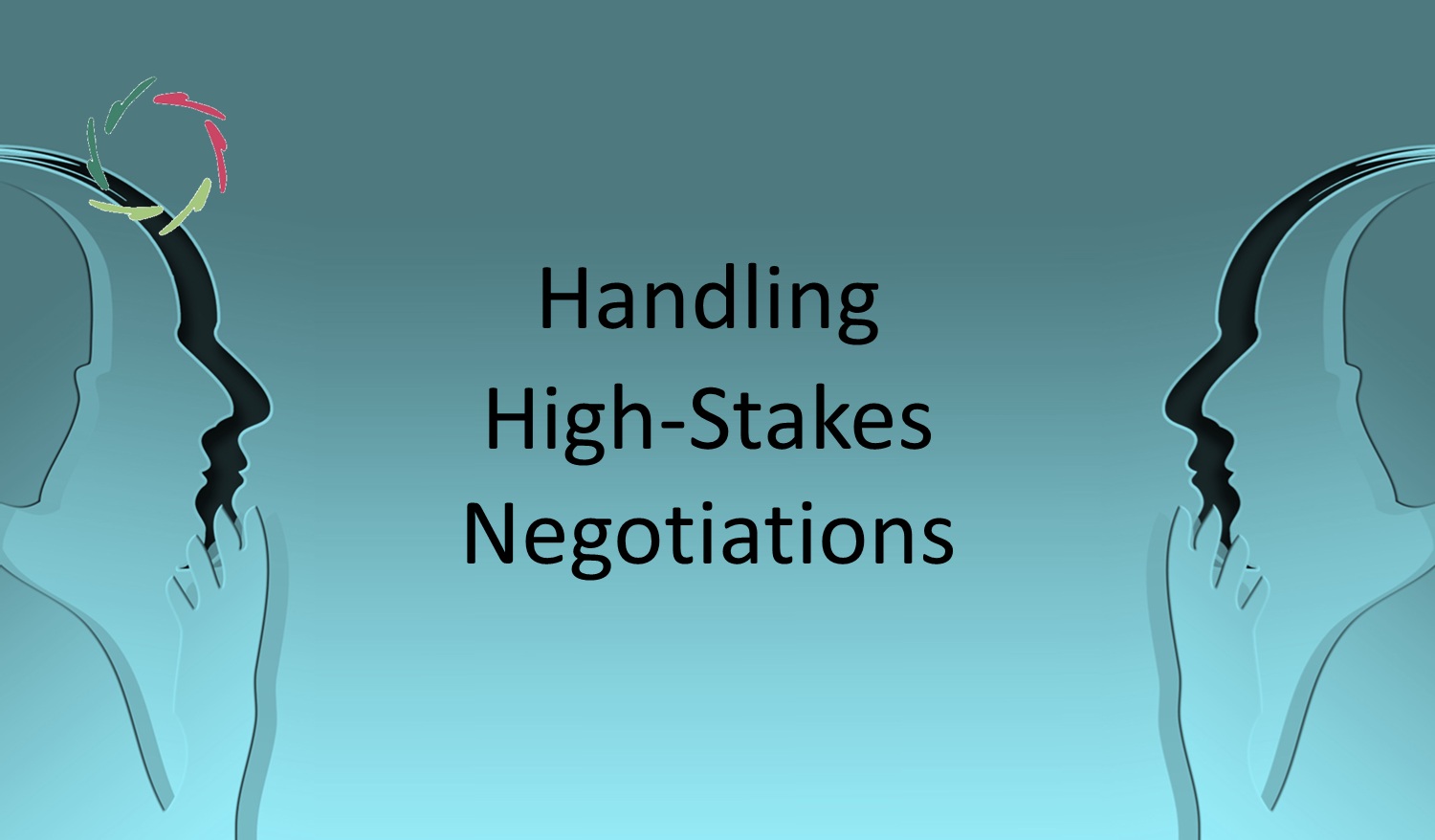
Handling High-Stakes Negotiations
High-stakes negotiations require a unique blend of psychology, strategy, and deep understanding. Whether you’re negotiating with a hacker over stolen data or mediating a serious conflict, the underlying principles are surprisingly similar. These conversations aren’t about ‘winning’ but about carefully building rapport, setting boundaries, and framing each exchange to guide it toward a positive outcome. Read the full article…

Ten Tips for Good Diplomacy
CAUTION: IN MIND-RELATED MATTERS, TIPS DO NOT WORK IF THERE IS NO DEPTH INVOLVED. That also counts for these tips. Without the ‘vertical move,’ they are practically worthless. Diplomats – including Lisa as a diplomatic executive coach – should be continually aware of this. The aim is deep diplomacy. One can read these ten tips Read the full article…
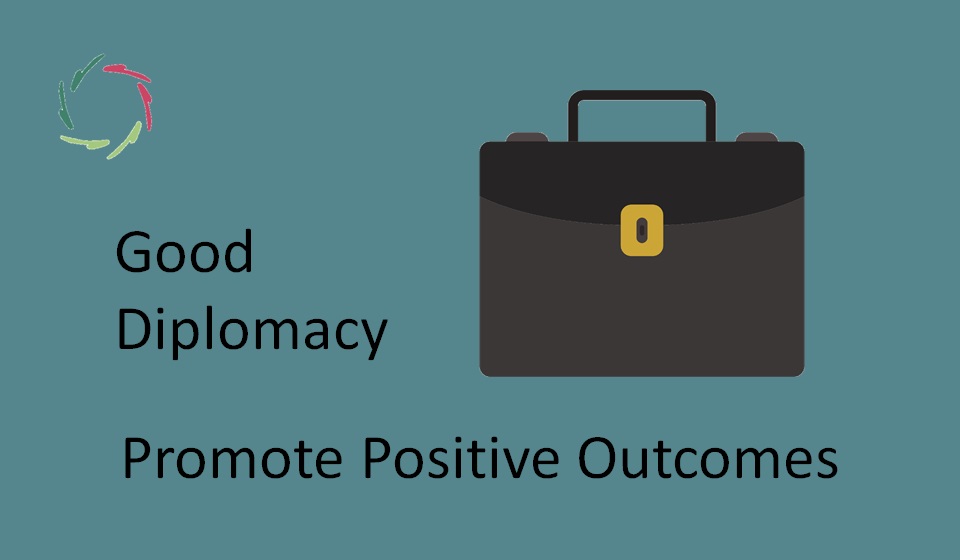
Promote Positive Outcomes: Focus on Positive, Win-Win Solutions
By promoting positive outcomes, diplomats and negotiators can create a constructive and optimistic atmosphere. Promoting positive outcomes in diplomacy means seeking solutions that benefit all parties involved. Focusing on win-win scenarios encourages cooperation and goodwill, helping to build stronger, more collaborative relationships. ― BEFORE TAKING THIS IN, PLEASE FIRST READ ‘TEN TIPS FOR GOOD DIPLOMACY’! Read the full article…

Stay Flexible: Be Willing to Adapt and Compromise
By staying flexible, diplomats and negotiators can navigate complex issues more effectively. Being willing to adapt and compromise shows a readiness to work together and find mutually acceptable solutions. Flexibility helps in navigating complex situations and achieving positive outcomes. ― BEFORE TAKING THIS IN, PLEASE FIRST READ ‘TEN TIPS FOR GOOD DIPLOMACY’! This is the Read the full article…
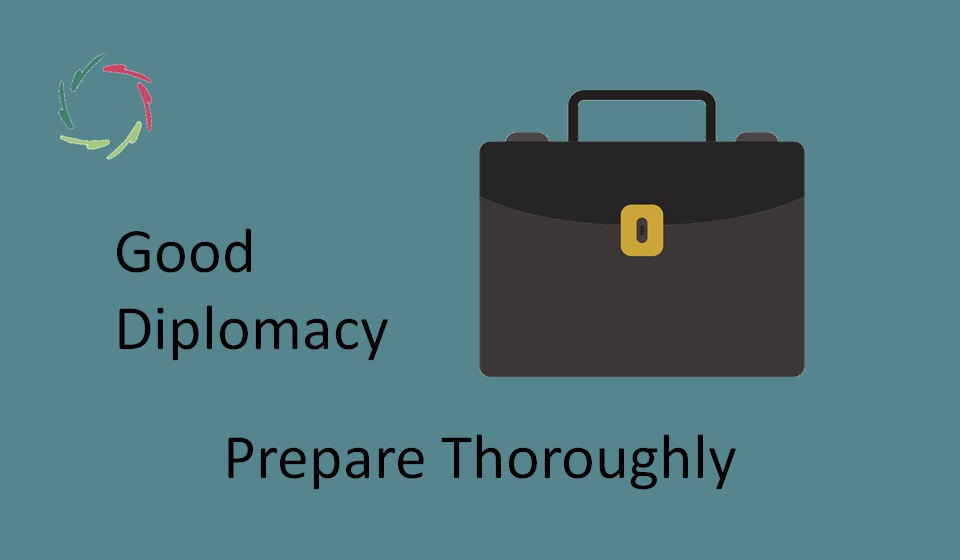
Prepare Thoroughly: Know the Facts, Understand the Context, and Anticipate Possible Objections
By preparing thoroughly, diplomats and negotiators can approach discussions with confidence and authority. Thorough preparation is a cornerstone of successful diplomacy. Knowing the facts, understanding the context, and anticipating possible objections ensure that you can address issues confidently and knowledgeably. ― BEFORE TAKING THIS IN, PLEASE FIRST READ ‘TEN TIPS FOR GOOD DIPLOMACY’! This is Read the full article…
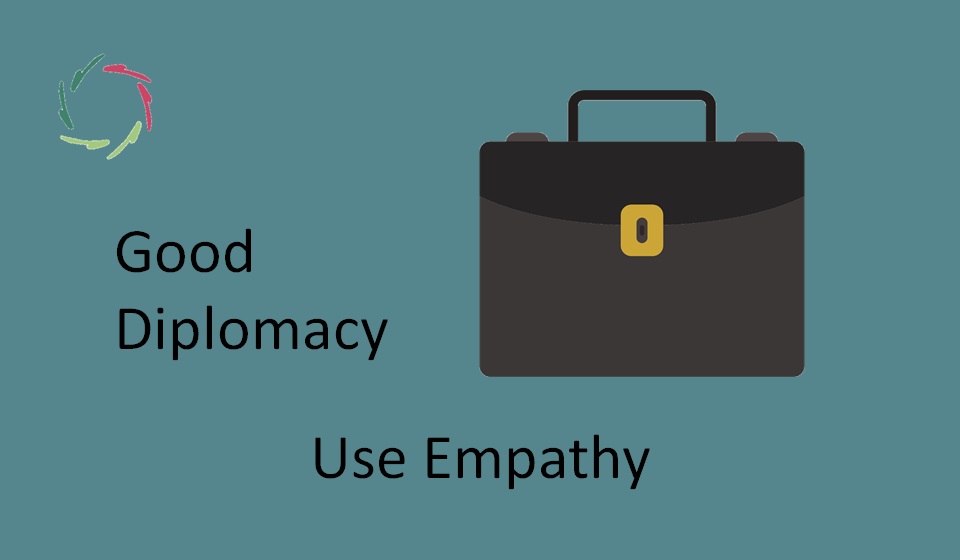
Use Empathy: Try to See the Situation from the Other Party’s Perspective
By using empathy in diplomatic interactions, diplomats and negotiators can create a more compassionate and effective dialogue. Empathy is a powerful tool in diplomacy. By understanding the situation from the other party’s perspective, diplomats can reveal underlying concerns. ― BEFORE TAKING THIS IN, PLEASE FIRST READ ‘TEN TIPS FOR GOOD DIPLOMACY’! This is the seventh Read the full article…
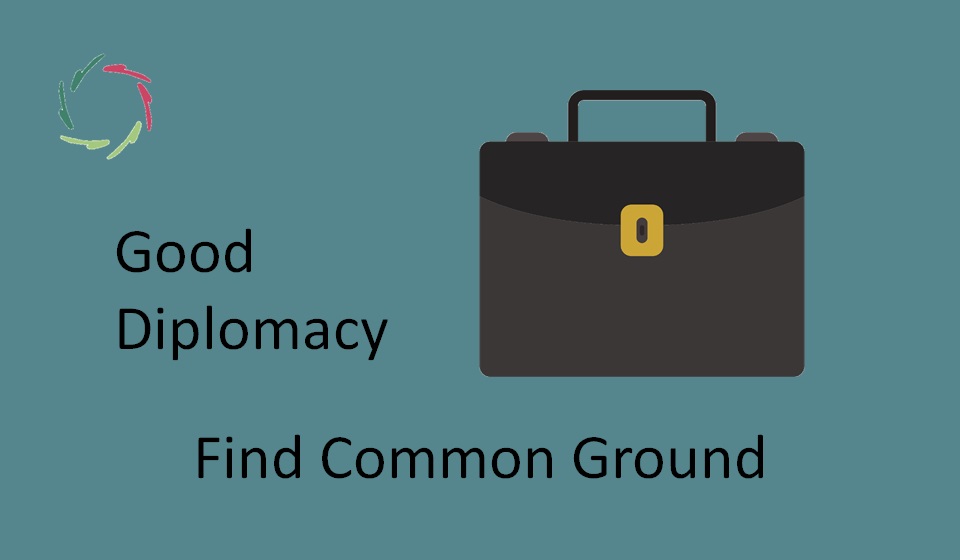
Find Common Ground: Focus on Shared Interests and Common Goals
By focusing on shared interests and common goals, diplomats and negotiators can create a strong foundation for resolving conflicts and building lasting partnerships. Finding common ground is essential in diplomacy. ― BEFORE TAKING THIS IN, PLEASE FIRST READ ‘TEN TIPS FOR GOOD DIPLOMACY’! This is the sixth tip of the series. ― Key Aspects Start Read the full article…
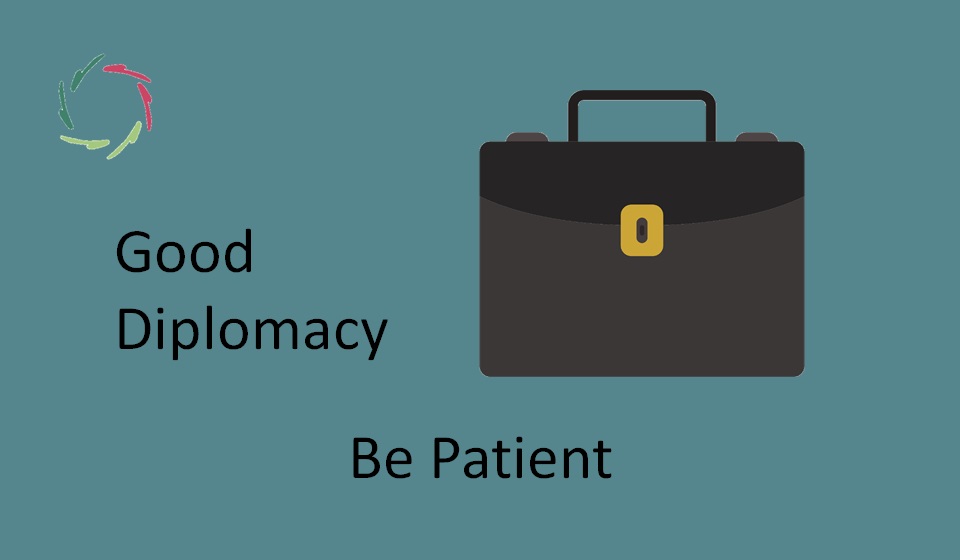
Be Patient: Diplomatic Processes Can Be Slow
By practicing patience, diplomats and negotiators can navigate the complexities of diplomatic processes more effectively. Patience is a crucial virtue in diplomacy. Diplomatic processes often involve complex issues and multiple stakeholders, which means progress can be slow. Patience allows time for reflection, understanding, and gradual progress. ― BEFORE TAKING THIS IN, PLEASE FIRST READ ‘TEN Read the full article…
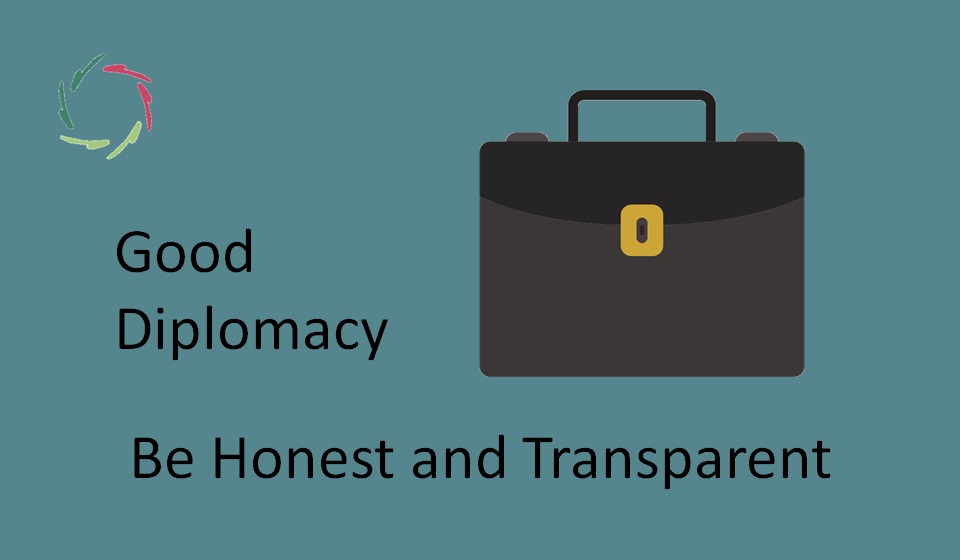
Be Honest and Transparent: Honesty and Transparency Build Credibility
By being honest and transparent, diplomats and negotiators can build a solid foundation of trust and credibility, making it easier to navigate complex issues and reach mutually beneficial agreements. Clearly articulating intentions and being open about motives can help create a foundation for mutual respect and cooperation. ― BEFORE TAKING THIS IN, PLEASE FIRST READ Read the full article…
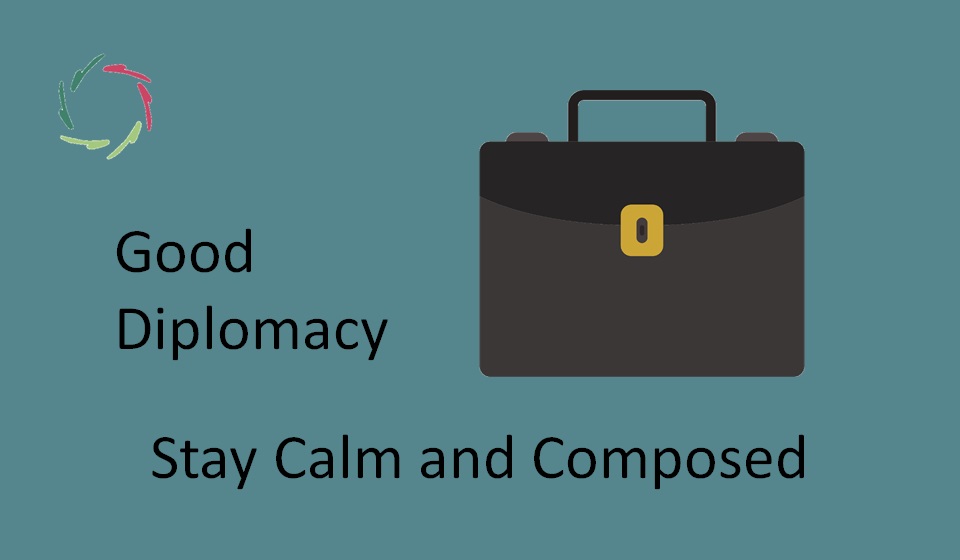
Stay Calm and Composed: Keep Emotions in Check
By staying calm and composed, diplomats and negotiators can navigate challenging situations more effectively, fostering a more constructive and cooperative atmosphere. Remaining calm and composed is crucial in any challenging diplomatic situation. It helps manage difficult scenarios and prevents escalation. ― BEFORE TAKING THIS IN, PLEASE FIRST READ ‘TEN TIPS FOR GOOD DIPLOMACY’! This is Read the full article…
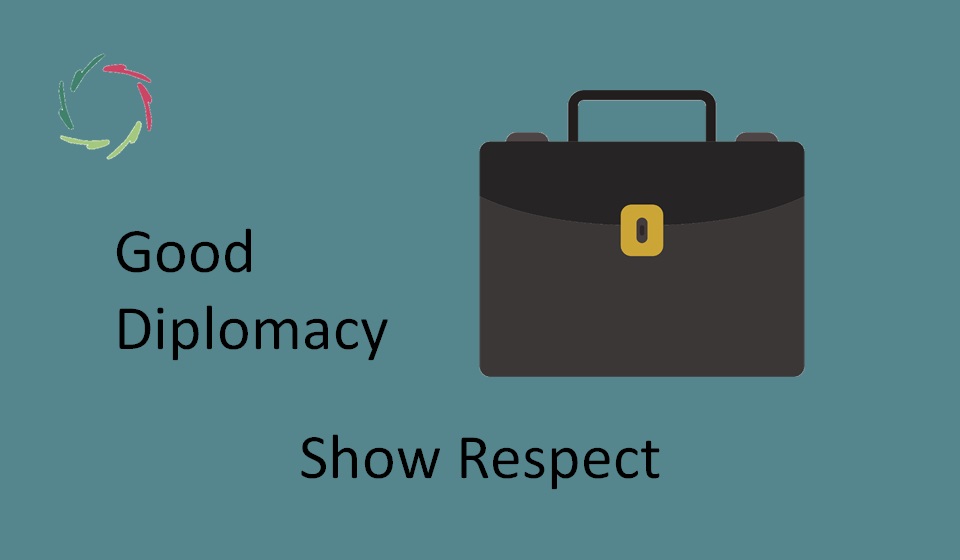
Show Respect: Always Maintain Respect for the Other Party, Regardless of Differences
By consistently showing respect in diplomatic interactions, diplomats and negotiators can create a more positive and productive environment. Showing respect involves recognizing the dignity and value of the other party, even when there are significant differences in opinions, beliefs, or interests. ― BEFORE TAKING THIS IN, PLEASE FIRST READ ‘TEN TIPS FOR GOOD DIPLOMACY’! This Read the full article…
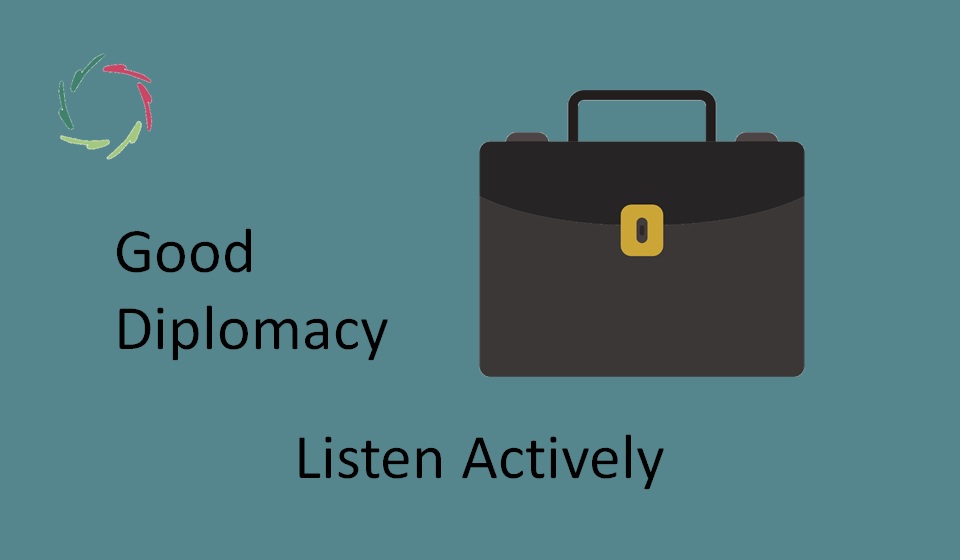
Listen Actively: Prioritize Listening Over Speaking
By prioritizing active listening, diplomats and negotiators can create a more respectful and productive dialogue. Active listening involves more than just hearing the words spoken; it requires fully engaging with the speaker to understand their message, emotions, and underlying concerns. BEFORE TAKING THIS IN, PLEASE FIRST READ ‘TEN TIPS FOR GOOD DIPLOMACY’! This is the Read the full article…

Lisa’s Journey into Mediation Mastery
AURELIS Transformative Mediation facilitates a profound journey toward self-improvement and relational harmony. Here are ten use cases with a focus on how Lisa (see category) can act as a mediator, each paired with a concrete example. Please read first AURELIS Transformative Mediation. 1. Resolving Workplace Conflicts Work-out: Lisa can guide employees through their feelings and Read the full article…

Lisa Lecturing Diplomacy
Lisa as an international diplomat? In my view, it’s only a matter of time before Compassionate A.I. forms part of international delegations ― starting here and there, then ALL such delegations and diplomacy. Let’s start with a few insights/lessons that can be part of the basis for Lisa’s international diplomacy. Moreover, diplomacy often requires patience Read the full article…

AURELIS Values in Diplomacy
As in coaching, ethical values are yardsticks to keep on a decent track within diplomacy. The ‘AURELIS five’ are nothing more nor less than this. They are also a means for gaining confidence. Diplomacy overlaps with mediation and negotiation. The best diplomacy being transformative, this overlaps with [see: “AURELIS Transformative Mediation“] (not meditation) [see: “Transformative Read the full article…

Transformative Negotiation
This is a quite specific take on the concept of negotiation, with much emphasis upon humans as total persons. The explicit aim: a better world. Negotiation everywhere The stakes may be high or low. You can negotiate with your daughter about the hour she returns at night, or at the highest level between nations to Read the full article…

AURELIS Transformative Mediation
AURELIS coaching is apt to be the basis for transformative mediation, a domain with a challenging present and a promising future. With mediation is meant in this blog-essay the AURELIS-based transformative kind. An excellent book about transformative mediation: The Promise of Mediation The Transformative Approach to Conflict, by Robert A. Baruch Bush & Joseph P. Read the full article…

Mediation is the Way Out of Polarization
At their core, people are the same. Dissociated from their core, people also dissociate from each other. In due time, they polarize. Mediation serves to bring them back to each other and themselves. Towards the blog title With mediation is meant here the AURELIS kind. [see: “AURELIS Transformative Mediation“] This is directed towards self-knowledge, self-growth, Read the full article…

Deep Diplomacy
The highest standard in diplomacy leads to welfare for all. Getting the best deal? Diplomacy is not a commercial act! Far more than deal-making, deep diplomacy is about making a better world. Thus also understanding what an ethically better world should be. This is about aligning one’s side and ‘the other side’ through common goals, Read the full article…